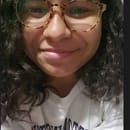“Odi et amo. Quare id faciam, fortasse requiris.
Nescio, sed fieri sentio et excrucior
hate and I love. You may ask why. I do not know, but I feel it and am tortured.”
These words have stayed with me since the first time that I read them, five years ago, in my freshman year Latin class. This poem, only two short lines, was written by a Roman poet by the name of Gailus Vaerius Catullus. This poem—though short—is anything but simple and for those of you who many know a bit of Latin, I would definitely encourage you to look more into it.
“hate and I love. You may ask why. I do not know, but I feel it and am tortured.”
We often find ourselves in these positions. Hating and loving. Feeling that we are being ripped apart, but unable to explain the cause.
For many, this sense of internal conflict stems from a lack of acknowledging problems that arise in our relationships, our self-image or our life. Issues that we do not want to confront and so we pretend they are not there. There are children’s stories that discuss the idea of dragons. A dragon enters the home of a family. It starts out small and manageable, but the family refuses to recognize its existence. “Dragons are not real!” they argue. And yet, someone is eating all of their pancakes and filling up rooms in the house. Eventually the seemingly fictitious beast grows to an enormous size and runs away with the house.
We all have dragons in life, issues and struggles that we must live with.
So the question becomes, how do you deal with your dragons?
Have you tamed them? Do you tuck them into tightly folded sheets, and perfectly pristine bedrooms? Perhaps they are placed between the narrow gaps left in your daily planner, hoping that if you run fast enough, they won’t keep up. Or do you lose your dragons somewhere in the chaos of your desk, where they lay-in-wait with misremembered due dates and overflowing trash cans?
People refuse to look their dragons in the eyes for many reasons. Some have not found their purpose in life and would rather wander about than face the beast head on. Others feel hopeless or worthless. Many look at who they are and who they could be, and the distance petrifies them. Rather than embrace the pain and acknowledge the feat, they remain the same, and the sameness, the sedentary life kills them. Dragons hoard treasure and they burn villages. They care not for who is lost in the process.
In the story of the family and the dragon, after their home had sprouted legs and run away, after their life would never truly be the same, they acknowledged the creature crowding their house. And once they had, he got a little bit smaller, and they pet him, and he shrank some more.
Look at your life. Find the creatures eating your pancakes and crowding your mind. Do not wait until they are large enough to run away with you. But if they are, pull them out from under your bed, look them in the eyes, and watch them.


